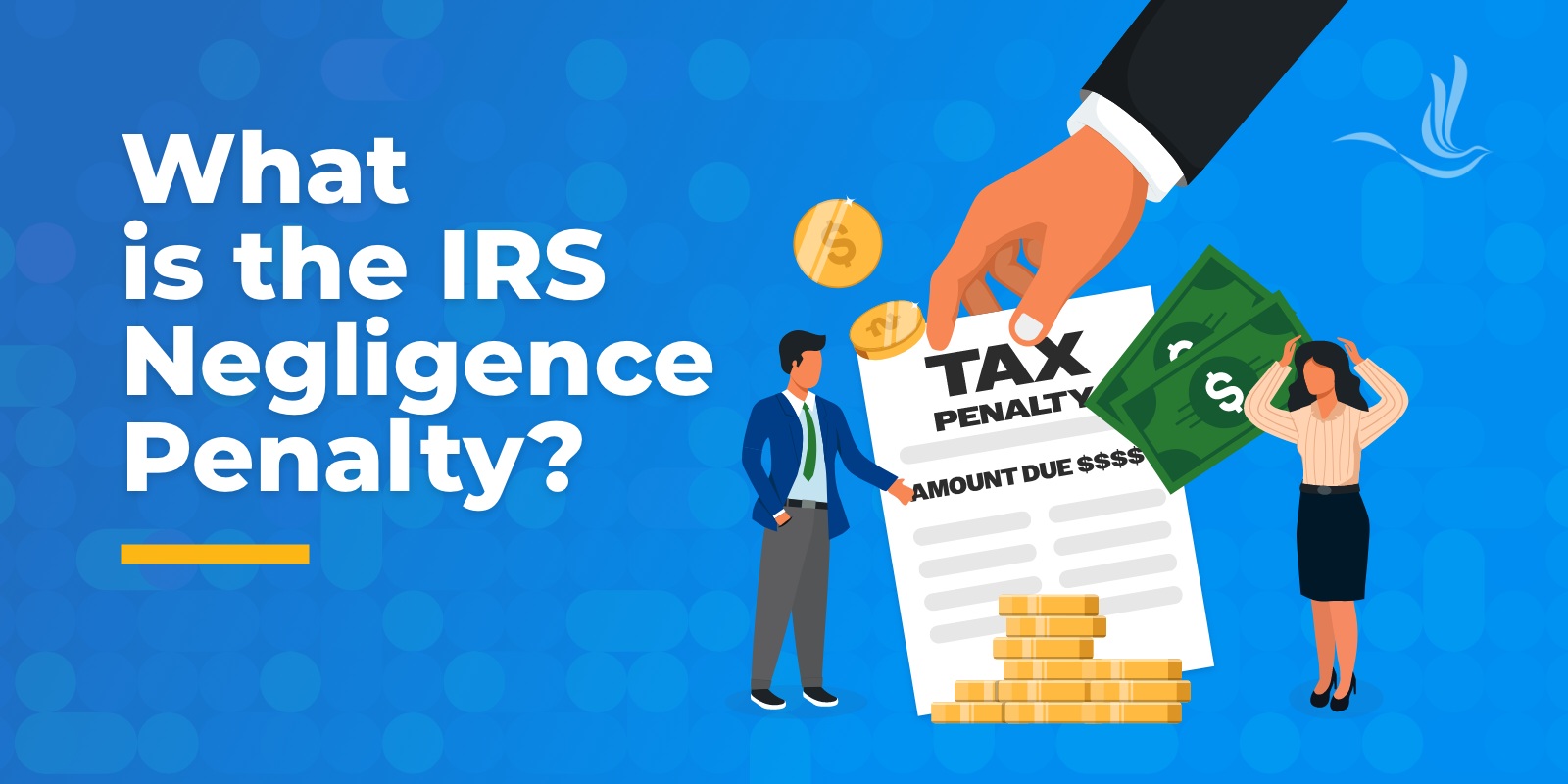
Failing to pay, or even underpaying, your taxes can have drastic consequences that can cost a fortune. This is because on top of your unpaid tax balance is a heap of penalties and interest. One of the most common penalties to watch out for is an accuracy-related penalty. These can include a substantial understatement of income tax penalty and a negligence penalty. While a substantial understatement of income tax penalty usually requires an individual to lie about their income, a negligence penalty can result from being careless or reckless with your tax return. Here’s a breakdown of what the IRS negligence penalty is and how to avoid it.
Negligence or Disregard of the Rules or Regulations Penalty
The IRS may impose the negligence penalty on taxpayers who fail to use reasonable care or who make mistakes on their tax returns. Negligence is the failure to act with the same degree of caution that a reasonably cautious person would in a similar situation. In the context of tax returns, negligence can include the failure to maintain accurate records. It can also include failure to declare all income or to confirm the validity of a tax deduction or credit.
How Negligence is Penalized
The negligence penalty can be up to 20% of the portion of the underpayment of tax resulting from negligence. In addition to this penalty, the IRS also charges interest on the penalty. The current quarterly interest rate for underpayment is 8%.
Tax Negligence vs. Tax Fraud
The difference between the negligence penalty and the IRS’s fraud penalty should be noted. The fraud penalty can be applied to taxpayers who knowingly and purposefully understate their tax liability. It is significantly more severe. Taxpayers who make errors are subject to a less severe penalty known as negligence.
If the IRS determines that a taxpayer has been negligent when preparing their tax return, they will typically send the taxpayer a notice informing them of the penalty. The taxpayer will then have the opportunity to dispute the penalty. They will need to provide additional information or argue that they were not negligent.
The IRS will normally issue the taxpayer a notice advising them of the penalty if they are found to have been careless when preparing their tax return. The taxpayer will then have the chance to contest the penalty by offering more substantiating details or making a case that they weren’t negligent.
Avoiding the IRS Negligence Penalty
It is important for taxpayers to take the necessary steps to ensure that their tax returns are accurate and complete. This involves keeping precise records, disclosing all earnings, and only claiming the deductions and credits that they qualify for. The purpose of the IRS negligence penalty is to motivate taxpayers to take the required precautions to guarantee the accuracy and completeness of their tax returns. Additionally, it ensures sure that taxpayers cannot profit from their errors or carelessness at the expense of other taxpayers. If you’ve been hit with IRS penalties, like the negligence penalty, Optima Tax Relief can help.
Contact Us Today for a No-Obligation Free Consultation